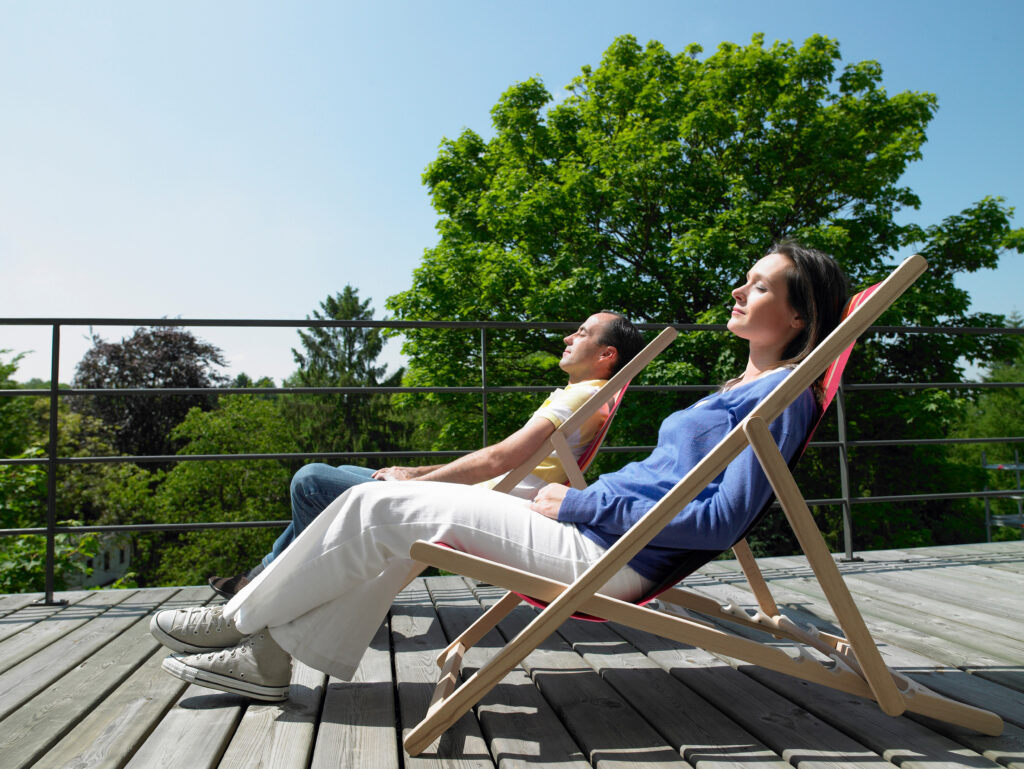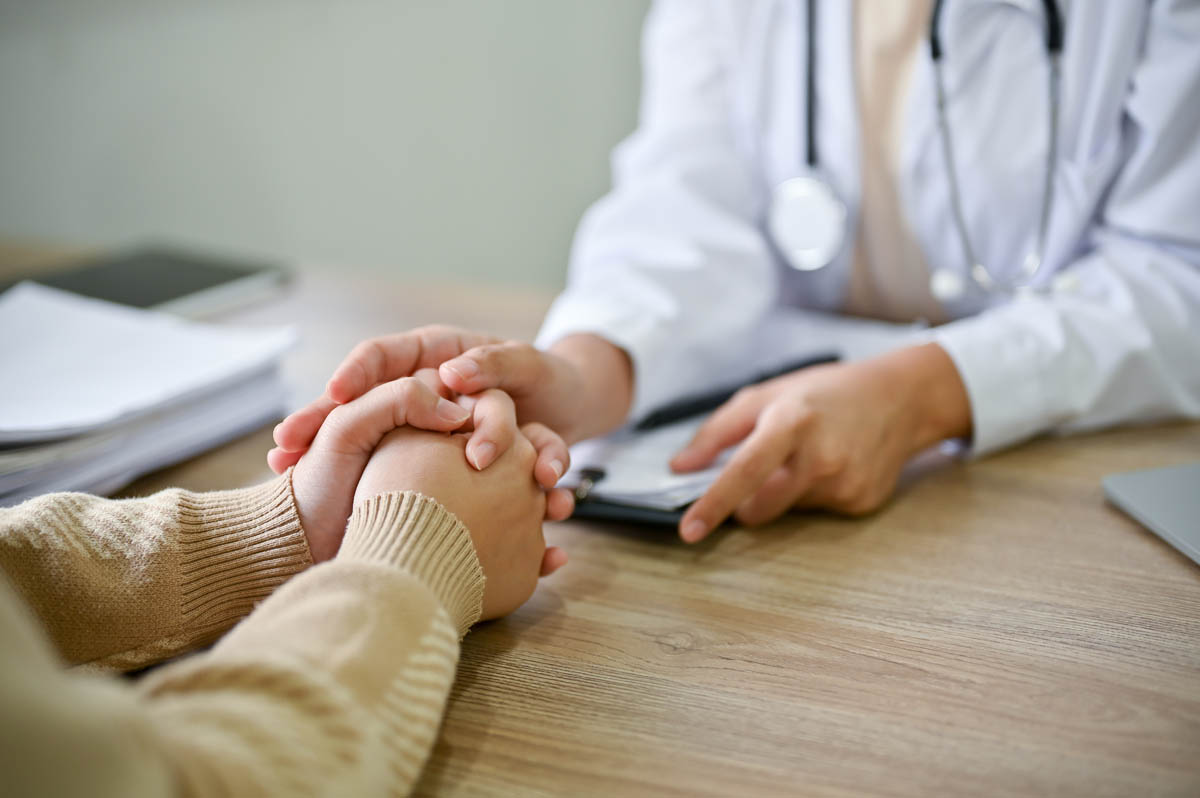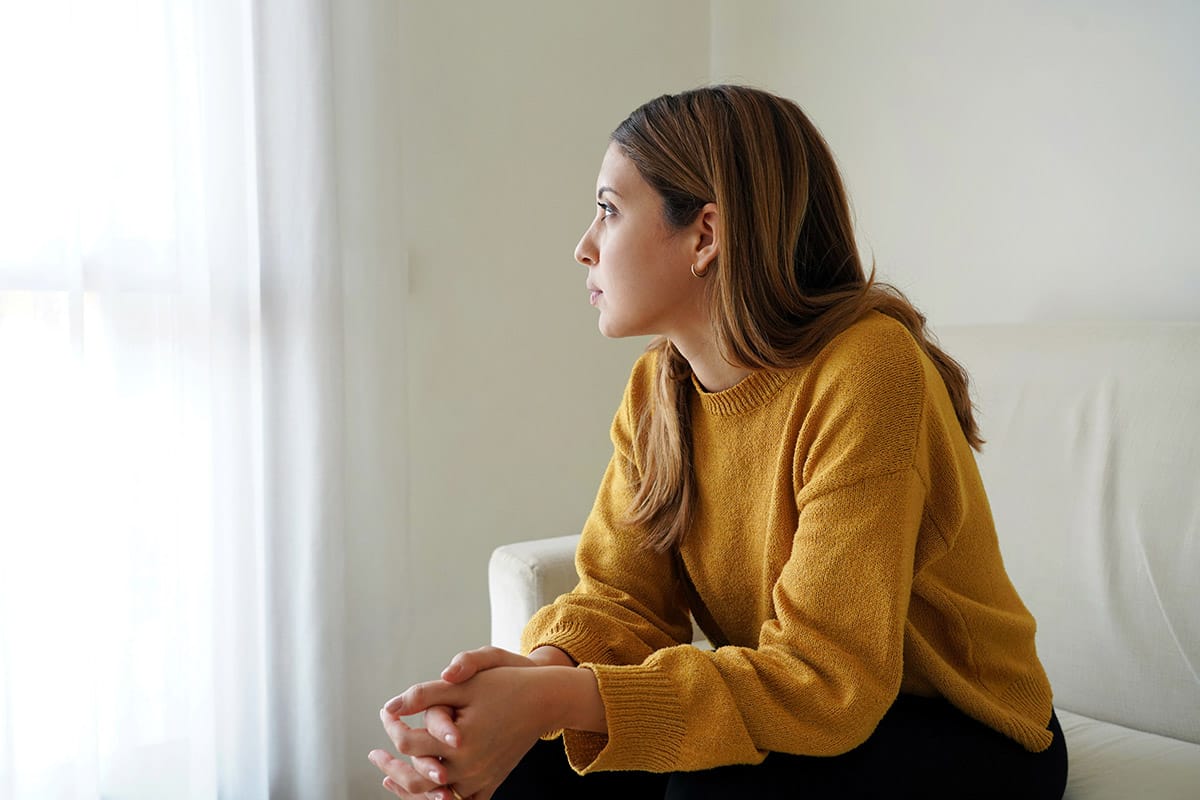From a glass of wine before bed to grabbing a beer with friends after work, using alcohol to unwind is a huge part of today’s culture. After a while, you may believe that the only way you can relax and recharge at the end of the day is by drinking. However, learning how to relax without alcohol is not only possible but essential for your overall well-being and mental health.
If you are in recovery after struggling with an alcohol addiction or looking to stop unhealthy habits, finding alcohol alternatives is key. Whether you’re wondering what to do instead of drinking to relax or seeking ways to unwind without alcohol, this comprehensive guide will help you discover healthier relaxation techniques for your daily routine.
Why People Turn to Alcohol to Relax
Understanding why alcohol feels relaxing can help you find better alternatives. According to the National Institute on Alcohol Abuse and Alcoholism (NIAAA), alcohol initially acts as a depressant on the central nervous system, temporarily reducing anxiety and stress. However, this effect is short-lived and can actually increase stress levels over time.
Many people use alcohol as a way to:
- Decompress after work
- Manage social anxiety
- Fall asleep more easily
- Cope with daily stressors
- Create a ritual that signals the end of the workday
While these reasons are understandable, there are much healthier and more effective ways to achieve these same goals.
15 Healthy Ways to Relax Without Alcohol
1. Take a Hot Bath or Shower
There’s a reason people love hot baths at the end of a stressful day. The daily grind can leave you feeling tense, and as soon as your tight muscles hit that soothing, hot water, the temperature relaxes and eases them. The sensation soothes you both physically and mentally. After 20 minutes or so, you’ll feel ready for a night of deep sleep.
For enhanced relaxation, try adding:
- Epsom salts to reduce muscle tension
- Essential oils like lavender or eucalyptus
- Soft music or nature sounds
- Dim lighting or candles
2. Listen to Soothing Music
Music is a universal pleasure and one of the most effective ways to relax without alcohol. Today, listening to your favorite bands, singers, or genres is easier than ever. Download music that gives you a sense of peace and well-being, and put it on repeat. Whether listening in your car, lying in bed, or soaking in the tub, the right music can soothe you.
Research published in the Journal of Music Therapy shows that music can significantly reduce stress hormones and promote relaxation.
3. Find an Alternative Beverage
The act of pouring yourself a glass of alcohol can be relaxing in itself. If you miss that sensation, find a tasty alternative beverage to enjoy. Some relaxing options include:
- Herbal teas (chamomile, valerian root, passionflower)
- Fresh fruit or veggie juice
- Water with lemon or cucumber
- Warm milk with honey
- Kombucha (non-alcoholic fermented tea)
- Mocktails with fresh herbs and fruits
4. Practice Yoga or Stretching
Yoga combines physical poses, controlled breathing, and meditation that many people find provides deep relaxation. Other stretching techniques, like pilates, can also help you relax and find a sense of mind-body awareness.
According to Harvard Health Publishing, regular yoga practice can help reduce stress, anxiety, and depression while improving overall well-being.
5. Get Outside and Connect with Nature
Whether going for a walk, jogging, or simply sitting on a park bench, getting out of doors is a profoundly relaxing experience. The combination of fresh air, sunlight, and natural beauty could be just the thing to take your mind off things and unwind.
6. Practice Deep Breathing Exercises
Deep breathing is one of the fastest ways to activate your body’s relaxation response. Try the 4-7-8 technique:
- Inhale for 4 counts
- Hold for 7 counts
- Exhale for 8 counts
- Repeat 3-4 times
This technique, recommended by the American Lung Association, can help reduce stress and promote better sleep.
7. Try Progressive Muscle Relaxation
This technique involves tensing and then releasing different muscle groups in your body. Start with your toes and work your way up to your head, tensing each muscle group for 5 seconds before releasing. This helps you become aware of physical tension and learn to release it.
8. Read a Book or Listen to Audiobooks
Reading can be an excellent way to escape stress and unwind. Choose books that transport you to different worlds or teach you something new. If you’re too tired to read, audiobooks can be equally relaxing and can help you wind down before sleep.
9. Practice Mindfulness and Meditation
Mindfulness meditation has been shown to reduce stress, anxiety, and depression. Apps like Headspace, Calm, or Insight Timer offer guided meditations for beginners. Even just 10 minutes of daily meditation can make a significant difference in your stress levels.
10. Engage in Creative Activities
Creative activities like drawing, painting, knitting, or crafting can be incredibly therapeutic. These activities engage your mind in a positive way and can help you feel accomplished and relaxed.
11. Connect with Friends and Family
Social connection is crucial for mental health. Instead of meeting for drinks, try:
- Going for a walk together
- Having a coffee date
- Cooking a meal together
- Playing board games or puzzles
12. Exercise Regularly
Regular physical activity is one of the most effective ways to reduce stress and improve mood. You don’t need intense workouts – even a 20-minute walk can help you feel more relaxed and energized.
13. Create a Relaxing Evening Routine
Establish a consistent evening routine that signals to your body it’s time to wind down. This might include:
- Dimming lights an hour before bed
- Avoiding screens before bedtime
- Journaling or gratitude practice
- Gentle stretching or yoga
14. Take Up a Hobby
Engaging in hobbies you enjoy can be a great way to relax and destress. Whether it’s gardening, cooking, photography, or learning a new skill, hobbies provide a healthy outlet for stress and can give you a sense of accomplishment.
15. Practice Gratitude
Keeping a gratitude journal or simply taking time to reflect on what you’re thankful for can shift your mindset and reduce stress. This practice has been shown to improve mental health and overall well-being.
How to Deal with Stress Without Alcohol
Learning to manage stress without alcohol is crucial for long-term health and well-being. Here are some additional strategies:
Identify Your Stress Triggers
Understanding what causes your stress can help you develop better coping strategies. Common triggers include:
- Work pressures and deadlines
- Financial concerns
- Relationship issues
- Health problems
- Major life changes
Develop Healthy Coping Mechanisms
Replace alcohol with healthier coping strategies:
- Talk to a therapist or counselor
- Practice stress management techniques
- Exercise regularly
- Maintain a healthy diet
- Get adequate sleep
- Stay connected with supportive friends and family
Learn to Say No
Setting boundaries and learning to say no to additional commitments can help reduce stress and prevent burnout. It’s okay to prioritize your mental health and well-being.
Better Sleep Without Alcohol
Many people struggle with how to sleep without alcohol, but there are effective alternatives:
Create a Sleep-Conducive Environment
- Keep your bedroom cool, dark, and quiet
- Use blackout curtains or an eye mask
- Consider a white noise machine or earplugs
- Invest in a comfortable mattress and pillows
Establish a Bedtime Routine
- Go to bed and wake up at the same time every day
- Avoid caffeine and large meals before bedtime
- Practice relaxation techniques before sleep
- Limit screen time before bed
Natural Sleep Aids
- Melatonin supplements (consult with your doctor first)
- Herbal teas like chamomile or valerian root
- Magnesium supplements
- Essential oils like lavender
If you continue to have trouble sleeping without alcohol, consider speaking with a healthcare provider about sleep disorders or underlying issues that may need treatment.
When to Seek Professional Help
If you’re struggling to relax without alcohol or finding it difficult to cope with stress, it may be time to seek professional help. Warning signs include:
- Feeling unable to relax or unwind without alcohol
- Increasing tolerance to alcohol
- Drinking more than intended
- Experiencing withdrawal symptoms when not drinking
- Neglecting responsibilities due to drinking
- Continuing to drink despite negative consequences
At 7 Summit Pathways in Tampa, Florida, we understand the challenges of learning to cope without alcohol. Our comprehensive addiction treatment programs are designed to help you develop healthy coping strategies and build a strong foundation for recovery.
Treatment Options for Alcohol Addiction
Outpatient Treatment Programs
Our outpatient treatment programs allow you to maintain your daily responsibilities while receiving the support you need. These programs include:
- Individual therapy sessions
- Group therapy focused on relapse prevention
- Family counseling and education
- Medication-assisted treatment (MAT) when appropriate
Partial Hospitalization Program (PHP)
Our Partial Hospitalization Program provides intensive treatment during the day while allowing you to return home at night. This program is ideal for those who need more structure than traditional outpatient therapy.
Intensive Outpatient Program (IOP)
Our Intensive Outpatient Program offers flexible treatment options for those who need ongoing support while maintaining work and family commitments.
Detoxification Services
If you’re physically dependent on alcohol, our medical detox services provide safe, medically supervised withdrawal management.
Additional Resources for Stress Management
Mental Health Resources
- 5 Activities to Improve Mental Health
- How to Reduce Morning Anxiety
- Ways to Cope with Holiday Stress
Recovery Resources
- Understanding the Stages of Addiction Recovery
- What Does It Mean to Be in Recovery
- Road to Recovery Quotes
Government Resources
- SAMHSA National Helpline: 1-800-662-4357
- National Institute on Alcohol Abuse and Alcoholism
- Centers for Disease Control and Prevention – Alcohol
Take the First Step Toward Healthier Relaxation
Learning how to relax without alcohol is a journey, not a destination. Be patient with yourself as you explore these new techniques and find what works best for you. Remember, it’s normal to feel uncomfortable at first when changing established patterns, but with time and practice, these healthy alternatives will become second nature.
At 7 Summit Pathways in Tampa, Florida, we’re here to support you every step of the way. Our compassionate team understands the challenges of breaking free from alcohol dependence and can help you develop personalized strategies for managing stress and anxiety.
Start Your Journey to Recovery Today
If you’re ready to learn healthier ways to cope with stress and unwind without alcohol, we’re here to help. Our comprehensive treatment programs in Tampa, Florida, are designed to meet you where you are in your recovery journey.
Don’t let alcohol control your ability to relax and enjoy life. Take the first step toward a healthier, more fulfilling future today.
Contact 7 Summit Pathways in Tampa: 📞 Call us at (813) 212-8129 📍 Visit us at 1910 Orient Rd, Tampa, FL 33619 🌐 Contact us online or schedule your appointment
Remember, seeking help is a sign of strength, not weakness. You deserve to live a life free from the constraints of alcohol dependency, and we’re here to help you achieve that goal.
If you or someone you know is struggling with alcohol addiction, don’t wait to seek help. The sooner you start treatment, the better your chances of a successful recovery. Contact 7 Summit Pathways today to learn more about our comprehensive addiction treatment programs in Tampa, Florida.




